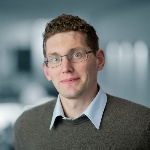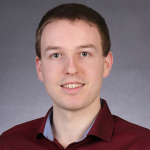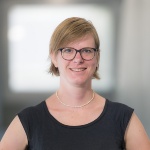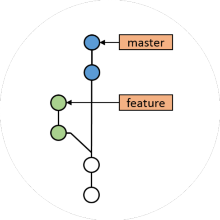Lecture content
There exist a lot of tools to make our work in research, teaching, and co-working in groups with other students or researchers easier and more effective, for example how to find bugs in our code faster using debugging tools, how to keep track of our change history with a version control system, or how to visualize our results in a convincing way. Especially in times of the Corona pandemic, when most people including students and researchers worked from home, it became clear that teaching knowledge and skills to work with these tools is a significant part of a scientific environment. Previously, these skills were often shown to students in personal meetings in the scope of a student thesis. In this lecture, various principles and tools are introduced, which are helpful in the context of scientific work in general and scientific programming in particular.
- Introduction
- Automation of experiments and simulations
- Libraries & dependencies
- Debugging & code optimization
- How to present your research: visualization of results
- FAIR principles
Course information
For participation please register for the lecture in C@MPUS. This will give you access to the ILIAS group and the shared working space on bwSync&Share.
The lecture is intended for graduate students attending a Master's program in engineering science (mach, kyb, fmt, math, tema, mecha, SimTech). Interested students of other fields of studies are also welcome. Moreover, the course is offered as FÜSQ (fachübergreifende Schlüsselqualifikation).
- 2 semester hours per week (SWS)
- 3 ECTS-Credits
Course takes place on Monday, 11:30 a.m. - 1:00 p.m., in V9.01, starting on Monday, October 17, 2022.
For the complete semester schedule see the table below. Lectures are held biweekly. Every other week, in Inverted Classroom style, students present their solutions to the homework exercises, and the comments/additions of the students to the course content are discussed.
| 2022-10-17 | Lecture |
| 2022-10-24 | Inverted Classroom |
| 2022-10-31 | Lecture |
| 2022-11-07 | Inverted Classroom |
| 2022-11-14 | Lecture |
| 2022-11-21 | Inverted Classroom |
| 2022-11-28 | Lecture |
| 2022-12-05 | Inverted Classroom |
| 2022-12-12 | Lecture |
| 2022-12-19 | no lecture |
| BREAK | |
| 2023-01-09 | Inverted Classroom |
| 2023-01-16 | Lecture |
| 2023-01-23 | Inverted Classroom |
| 2023-01-30 | Lecture & Consultation Hour |
| 2023-02-06 | alternative date if required |
All material can be found on ILIAS and bwSync&Share.
Depending on the number of participants, the exam will be in written or oral form.
Students who do not take the exam but need a proof of attendance (e.g. PhD students, FÜSQ participants) have to present their results for at least one minor and one major exercise in the Inverted Classroom meetings.

Jörg Fehr
Prof. Dr.-Ing.
Arnim Kargl
M.Sc.
Sibylle Hermann
Dipl.-Ing.(2019 - 2024)



